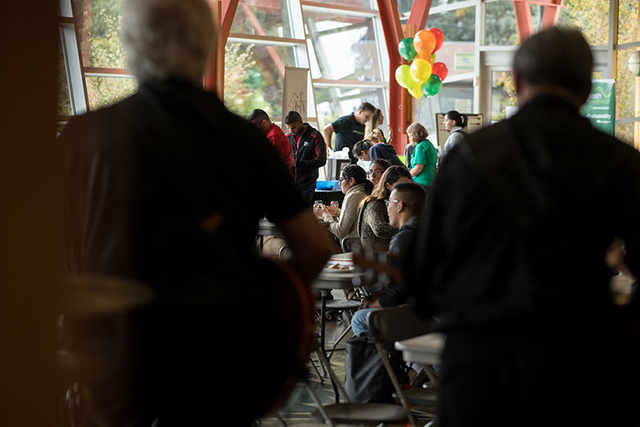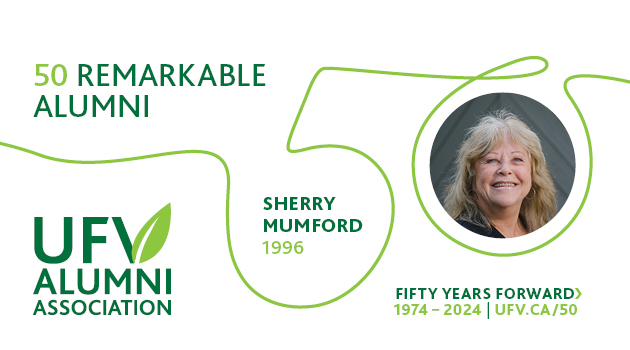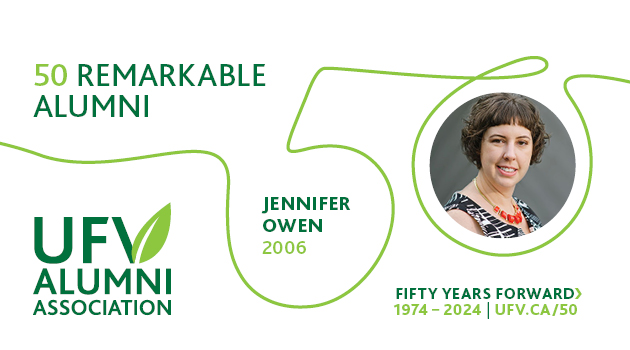Sustainable Events Certification checklist elevates green practices at UFV events

Four weeks before Creativity Lab for Climate Resilience events were set to begin at UFV in May, organizers received an email from the UFV Office of Sustainability.
Attached was an Excel spreadsheet with a self-reporting checklist listing more than 50 line items with several different categories to abide by — from Event Materials to Waste Reduction and Diversion. As organizers of an event series that directly correlated to sustainability, UFV faculty members Anna Griffith, Chantelle Marlor, and Hannah Celinski embraced and considered every suggestion applicable to them.
At each Lab, participants brought their own refillable water bottles, coffee mugs, plates and utensils, as well as containers to bring home leftovers. The organizers created reusable, laminated signage for universal washrooms, and booked accessible space where natural light could be used. They provided information on bike and bus routes to and from the events and chose to advertise strictly online rather than print posters. And, they committed to using a low-waste caterer, Scapegoat Grazing, which sources food from local farmers and artisans.
The event received a perfect “gold” rating from the automated Sustainable Events Certification.
“The Sustainable Events checklist is a fantastic resource that really helped us to think through how to make our Creativity Labs as close to zero waste as possible and accessible to all,” says Griffith, assistant professor in the School of Creative Arts.
“All events at UFV, big and small, should be required to use the checklist and go through certification.”
The Sustainable Events Certification checklist was developed by the Office of Sustainability through the BC Hydro and FortisBC’s Energy Wise Network initiative which promotes energy conservation strategies for workplaces. The Office of Sustainability started the initiative in 2021 by working with a coach as well as different sustainability and energy practitioners from all over B.C. in various sectors before finalizing their own Sustainable Events Certification for UFV in March.
During the development period, the office also researched the best sustainable event practices from other leading post-secondary institutions while implementing some of their own ideas.
“We found event certifications mostly focus on the environmental side – which we do focus a lot on – but we also wanted to add in that social sustainability aspect,” says Jennifer Martel, sustainability coordinator in UFV’s Office of Sustainability. “Obviously, an environmentally sound event is a priority, but if it is not an accessible event for all to attend, then it’s not truly sustainable.”
The checklist has several overlapping themes with the global STARS rating system, which the school recently adopted to elevate the university’s sustainability practices. The difference, however, is the Sustainable Events Certification checklist is self-regulated and not mandatory for event organizers to participate in.
“Right now it’s just a recommendation, but we hope that event organizers will at least go through the checklist, even if they don’t end up going through the full certification, for their first event,” Martel says. “Long term, we’d love to see all events reach a high standard of sustainability.”
The checklist is divided into three categories: pre-event planning and preparation; day of/during the event; and post-event. Suggestions range from venue selection to decoration recycling and marketing materials.
When the event checklist is complete, the certification level will be calculated and verified by the Office of Sustainability. Events are only evaluated by relevant categories. For example, if you are not having food at the event, the food and catering categories will not be scored. Gold certifications means that 90% of applicable actions are complete, silver is 75-89%, and bronze requires between 50% and 74%.
Since March, there have been more than 10 UFV events that went through the certification checklist program, all of which scored silver or higher. Several other events unofficially went through the checklist and implemented suggestions. With back-to-school rapidly approaching, Martel hopes that more event organizers at UFV become aware and see the value of the certification checklist as they start planning fall events.
“The beginning of the fall semester is always really exciting and energetic and a bit chaotic with events to kick off the school year,” says Martel. “So, let’s start making better choices for these events by doing the simple changes to help the planet in the process.”




